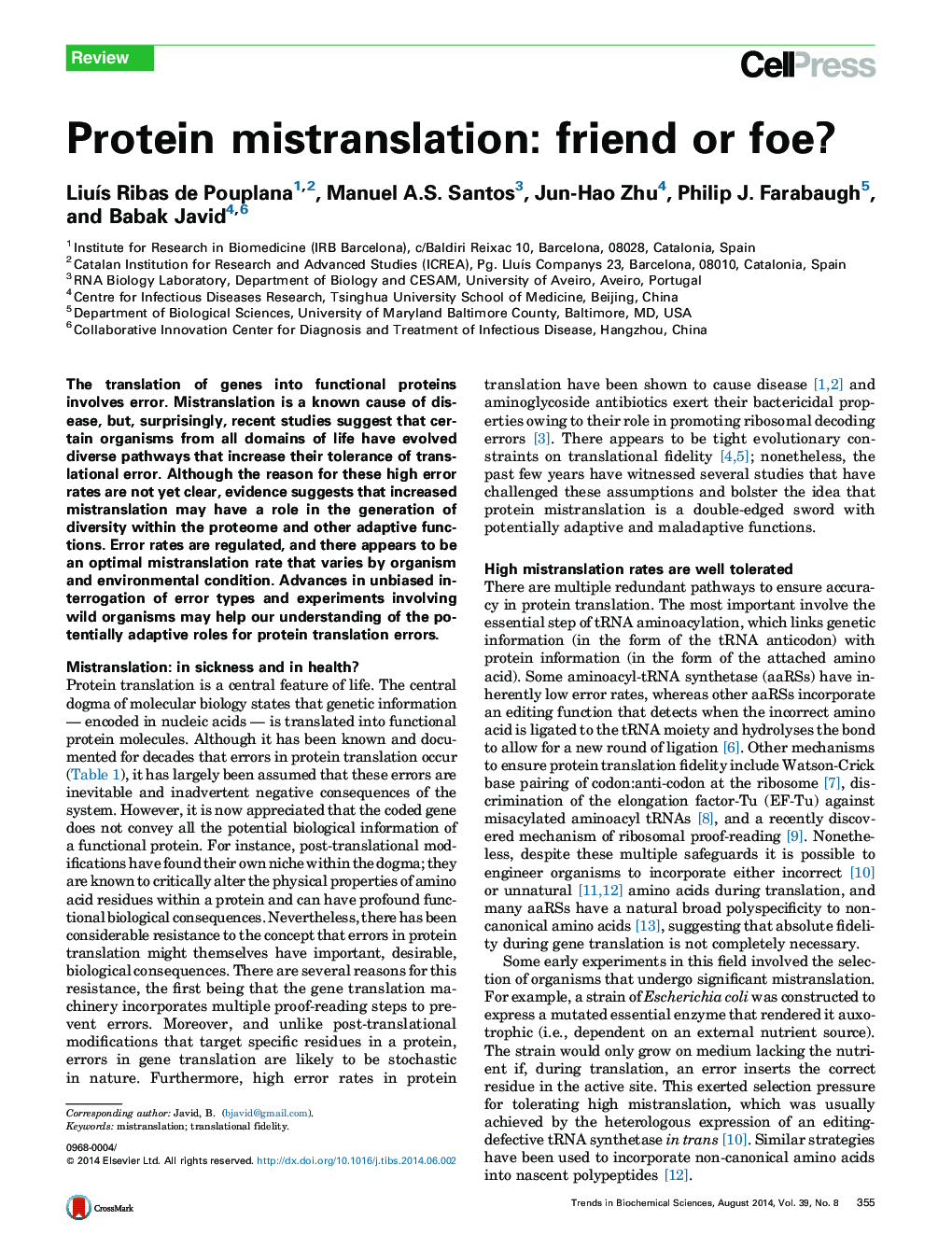| Article ID | Journal | Published Year | Pages | File Type |
|---|---|---|---|---|
| 2030715 | Trends in Biochemical Sciences | 2014 | 8 Pages |
•Mistranslation rates are remarkably high and well tolerated.•Many different organisms have evolved to have high mistranslation.•Mistranslation increases proteomic diversity in a statistical manner.•Mistranslation may be adaptive under stress.
The translation of genes into functional proteins involves error. Mistranslation is a known cause of disease, but, surprisingly, recent studies suggest that certain organisms from all domains of life have evolved diverse pathways that increase their tolerance of translational error. Although the reason for these high error rates are not yet clear, evidence suggests that increased mistranslation may have a role in the generation of diversity within the proteome and other adaptive functions. Error rates are regulated, and there appears to be an optimal mistranslation rate that varies by organism and environmental condition. Advances in unbiased interrogation of error types and experiments involving wild organisms may help our understanding of the potentially adaptive roles for protein translation errors.
